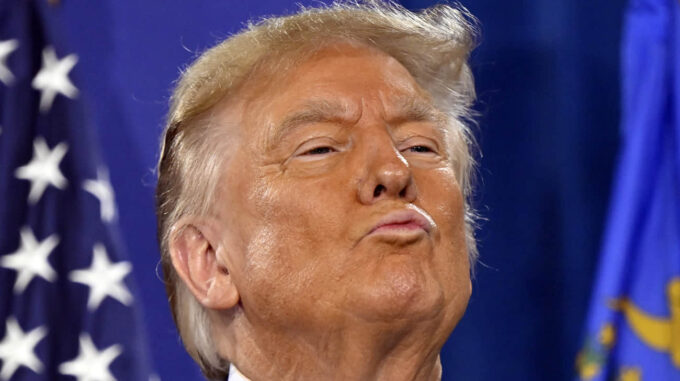Concern of US allies regarding possible territorial concessions by Russia under Trump’s “peace plan”: interpretation and prospects

In light of recent events and diplomatic discussions, many analysts and political experts are paying increased attention to growing anxiety among the United States’ allies about potential scenarios for resolving the conflict around Ukraine. It is important to note that, according to American CNN, internal sources who wished to remain anonymous express dissatisfaction and concerns regarding the so-called "peace plan" proposed by Donald Trump, which, according to experts, involves significant territorial concessions from Ukraine in favor of Russia. According to these sources, a document presented last week in Paris envisages Ukraine’s commitment to recognize Crimea as part of Russia and to transfer part of its territories to Russian military and authorities. The idea presumes that even remaining Ukrainian territories could be pressed to the limits defined by Moscow, and Kyiv—likely within certain agreements—would make sacrifices for peace, which causes outrage and anxiety among many European diplomats. Official statements from NATO member countries indicate that many diplomats and government officials fear such a strategy could undermine principles of international law and set a dangerous precedent. Diplomats emphasize that recognizing Russia’s illegal occupations, such as Crimea, from their point of view, destroys the principle of the inviolability of borders and could encourage Moscow’s aggressive policies in the future. They note that signing any deals allowing retreats from international norms threatens not only Ukraine but also the entire European security framework. An insider from Kyiv, working within diplomatic circles, underscores: "If one of the affected states—Ukraine—receives recognition of the illegal annexation of Crimea and is forced to give up part of its territories, it will create a dangerous precedent that will be confirmed in the future for other countries. No country in Europe or elsewhere will be able to feel secure, since any potential aggressor could justify similar actions, knowing they can be easily covered by diplomatic agreements and promises." At the same time, political analysts point out that the further policy of the Trump administration regarding Ukraine’s territorial integrity could radically shift the balance of power and attract international attention. Particularly alarming is the prospect that, under the guise of seeking peace and compromises, Russia might legitimize its occupations and expand its influence—contradicting all established norms and agreements. Preparation for new diplomatic steps is indicated by the planned meeting between US Special Envoy Steve Vitteoff and Russian President Vladimir Putin, scheduled for Friday. According to diplomatic sources, progress was made in negotiations with European, Ukrainian, and American officials in London ahead of this meeting, creating conditions for further developments. However, many European politicians express concerns about the speed and substance of potential agreements, believing that such an approach could compromise the principles of international diplomacy. Meanwhile, Ukrainian government officials and experts continue to emphasize their unwavering red lines—territorial integrity and sovereignty of the country. Ukraine insists that any territorial concessions must be coordinated with it and cannot be made solely to hasten the end of the war or to satisfy other parties’ interests. In this context, the provision of security guarantees for Ukraine, reportedly supported by Britain and other European allies, plays an important role. They are discussing the possibility of deploying additional military forces in the region to deter aggression and strengthen security. On the other hand, Russia rejects any scenario in which Kyiv could renounce Crimea or part of its territory in its favor. President Trump has noted that US troops will not go to Ukraine, emphasizing that any military support will be carried out within the interests of the US and its allies, but without direct participation of American forces in the Ukrainian war. According to one diplomat, the situation remains complex and even alarming. "Any agreement that supposedly allows Russia to gain some area of influence is, above all, a deep disappointment for Ukrainians. However, if Ukrainians are willing to compromise within reasonable limits, they might avoid larger losses and preserve some of their independence," he said. Thus, the political dynamics surrounding Ukrainian settlement keep the world on edge. Growing anticipation and fears intensify discussions about the role of international institutions, security, and long-term stability in the region. Meanwhile, key players on the diplomatic stage continue seeking answers to whether current policies can lead to stable peace or if they risk making the situation even more unpredictable.

